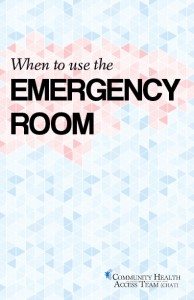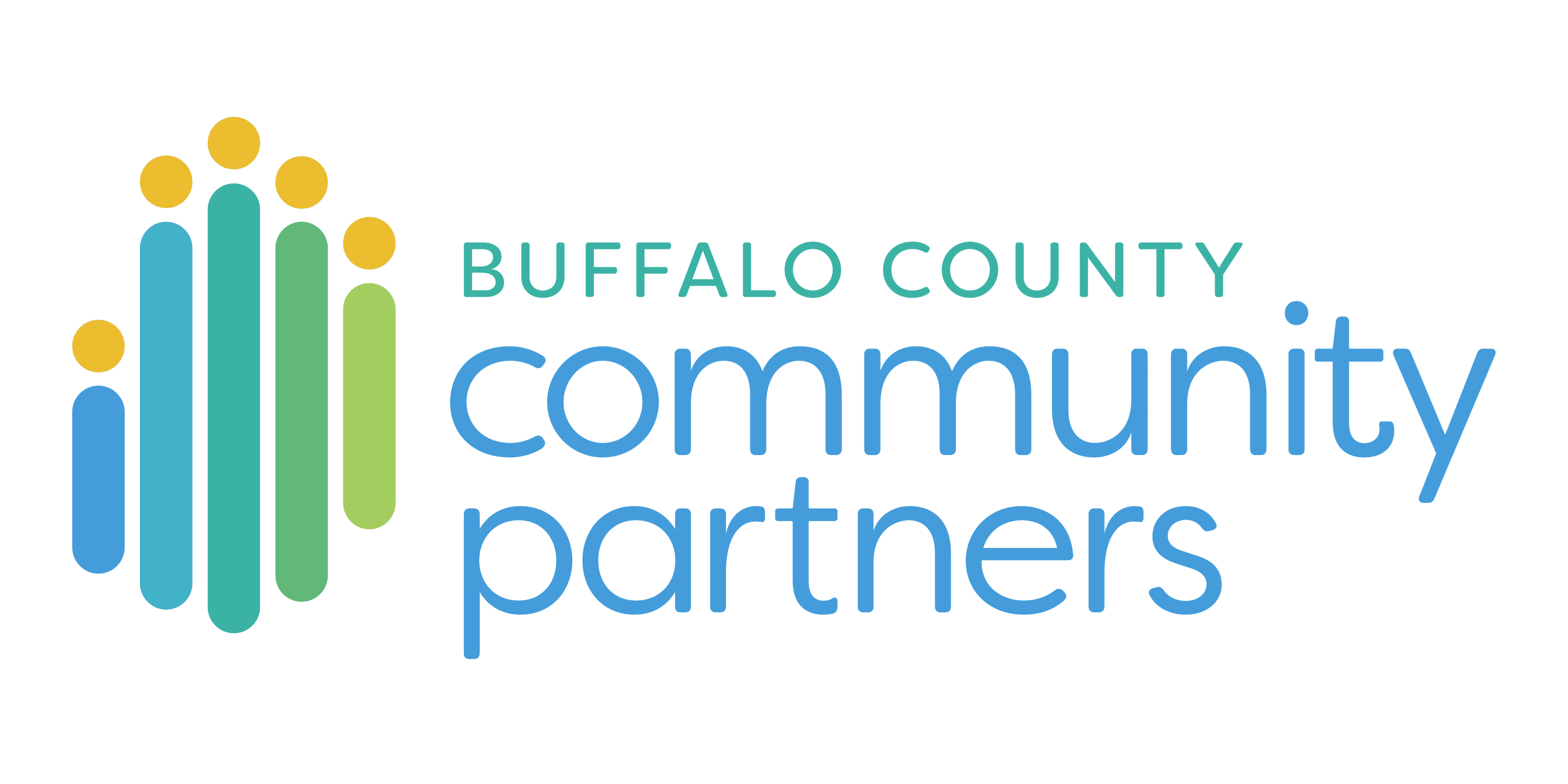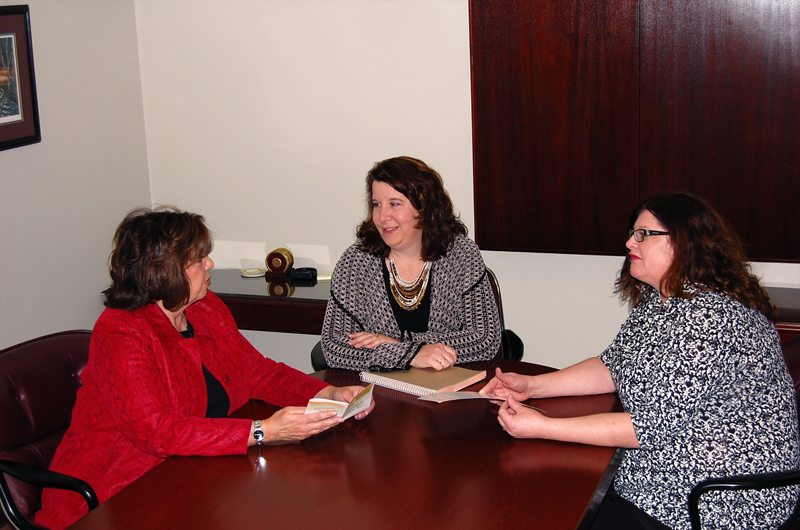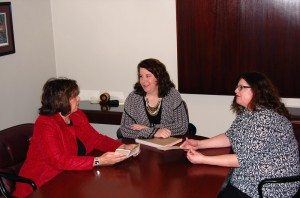 For the past two years, Health HUB has been working to assist uninsured community members with diabetes by helping them find pathways to care. The program is funded by a Catholic Health Initiatives Mission and Ministry Grant through June 30, 2014, implemented by community health workers and nursing professionals at Sentinel Health Care, and overseen by Buffalo County Community Partners, who provides a program coordinator.
For the past two years, Health HUB has been working to assist uninsured community members with diabetes by helping them find pathways to care. The program is funded by a Catholic Health Initiatives Mission and Ministry Grant through June 30, 2014, implemented by community health workers and nursing professionals at Sentinel Health Care, and overseen by Buffalo County Community Partners, who provides a program coordinator.
Health HUB is now serving 191 clients and has documented positive outcomes in each of its pathways. In addition to seeing a significant decrease in clients’ A1c test results, Health HUB has helped save Good Samaritan Hospital over $3.5 million in total costs of care, among other things.
Through Health HUB’s Safety Net Pathway, clients are educated on the importance of having a primary care provider and on the appropriate use of the emergency room. By connecting clients with physicians, community health workers, and other primary care providers, Health HUB has decreased its clients’ use of the emergency room. After being enrolled in the program for over a year, 59 percent of clients have not been back to the emergency room for medical care, resulting in $3,529,475.66 in savings for Good Samaritan Hospital. In addition, Health HUB has maintained a 4-to-1 cost ratio of pre-emergency room costs to grant costs, better than the national recommendation of a 3-to-1 cost ratio.
“Good Samaritan Hospital welcomes the opportunity to partner with the community to provide access to care for uninsured residents,” said Good Samaritan Hospital’s Vice President of Patient Care Services Carol Wahl. “This program is documenting a significant cost savings to Good Samaritan, but more importantly it is providing a safety net for people who in some cases don’t have any other option than to visit the Emergency Room for care.”
Through Health HUB’s Medication Access Pathway, community health workers educate clients on the importance of taking medication regularly and assist clients in obtaining medication. Working with the Medication Access Program through Sentinel Health Care, 73 clients have been able to obtain 633 prescriptions, for a total savings of $302,554.07.
“The Pathways Model is designed to increase accountability, demonstrate health outcomes, and improve health access by identifying at-risk people, addressing or treating their issues, and measuring the results of our intervention,” said CHAT/Health HUB Coordinator Jessie Perez. “Through Health HUB’s Medication Access Pathway, community health workers help people access medication, while nurses educate clients on the importance of taking medication regularly and perform a medication reconciliation that helps clients understand and plan for their medication regimen.”
Nearly 45 percent of Health HUB clients reported having social needs barriers that were preventing them from receiving adequate health care. Social barriers included limited access to food, housing, transportation, and child care; cultural, language, and literacy barriers; and financial instability. Through its Social Service Referral Pathway, Health HUB has helped 52 percent of those clients overcome their barriers.

Health HUB’s “When to Use the Emergency Room” pamphlet explains when emergency care is required and when to consult with your primary care provider.
Health HUB also has a Diabetes Education Pathway, which aims to provide education to clients and improve their ability to self-manage their diabetes. This has helped reduce the number of emergency room visits by Health HUB clients and resulted in a 1.2 percent decrease in clients’ A1c levels on average. The A1c test measures how much glucose is attached to someone’s hemoglobin and is one of the primary tests to diagnose diabetes, check blood sugar levels, and gauge the effectiveness of treatment and management. This decrease in A1c levels will significantly reduce clients’ chances of complications from diabetes, such as organ damage and amputations.
Health HUB’s fifth objective is the implementation of its Payment Source Pathway, which helps clients secure a stable form of payment so they can continue to see their primary care provider, receive medication, and better control their diabetes. This is done by assisting clients in applying for resources from the Center for Medicare/Medicaid Services (CMS), commercial payers, and other sources. By working with a community health worker, 38 percent of Health HUB clients who had medical debt were able to continue seeing their primary care provider.
Even with the assistance of Health HUB and its resources, many clients are still unable to receive the care they need due to barriers within these pathways. To help resolve these issues, the Community Access Network (CAN) Team is developing a plan for a community clinic that addresses barriers to health care in our community. Information collected from Heath HUB’s work will be used in the planning process of that community clinic. While the CAN Team’s work will not come to fruition for several months, Health HUB will continue educating and assisting uninsured community members with diabetes.
“The Health HUB has been able to provide evidence-based information on the unmet needs of a segment of our society that has no access to health care due to being uninsured or underinsured,” said Denise Waibel-Rycek, chair of the Community Health Access Team and instructor at the University of Nebraska Medical Center College of Nursing. “Financial and social barriers can have a significant effect on health, as is seen by the individuals who could not control their diabetes and have suffered consequences from poor control of their disease. The Health HUB now has documented evidence of the gaps in care created by financial or social barriers. Having this information allows us to make a case for a particular service in the community.”
Health HUB is a program of the Community Health Access Team, an advisory board of Buffalo County Community Partners. The board is currently developing a sustainability plan to continue the program and further address community members’ unmet health needs. The following members serve on the Advisory Board:
- Jannette Arram from Walgreens Pharmacy
- Andrew Brackett from the Nebraska AIDS Project
- Steph Burge from the University of Nebraska Medical Center
- Laurie Jameson from Kearney Housing Authority
- Lisa Johnson from Central Health Center
- Cindy Kempt from Monsanto Seed
- Terry Krohn from Two Rivers Public Health Department
- Jessie Perez from Buffalo County Community Partners
- Jessica Rich from Good Samaritan Hospital
- Carmen Royle from Sentinel Health Care
- Ann Trvdik from Region 3 Behavioral Health Services
- Kellie Urbanek from Kearney Public Schools
- Denise Waibel-Rycek from the University of Nebraska Medical Center College of Nursing
- Julie Weir from Community Action Partnership of Mid-Nebraska
- Crystal Winfield from Sentinel Health Care
- Denise Zwiener from Buffalo County Community Partners


